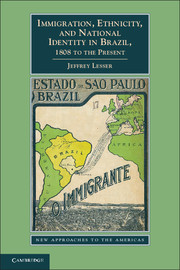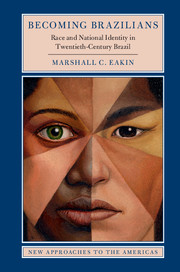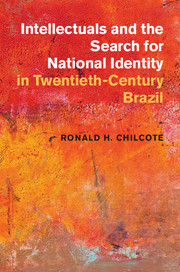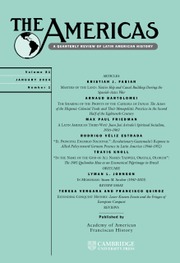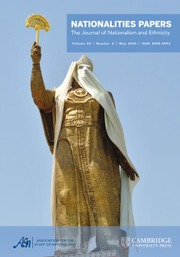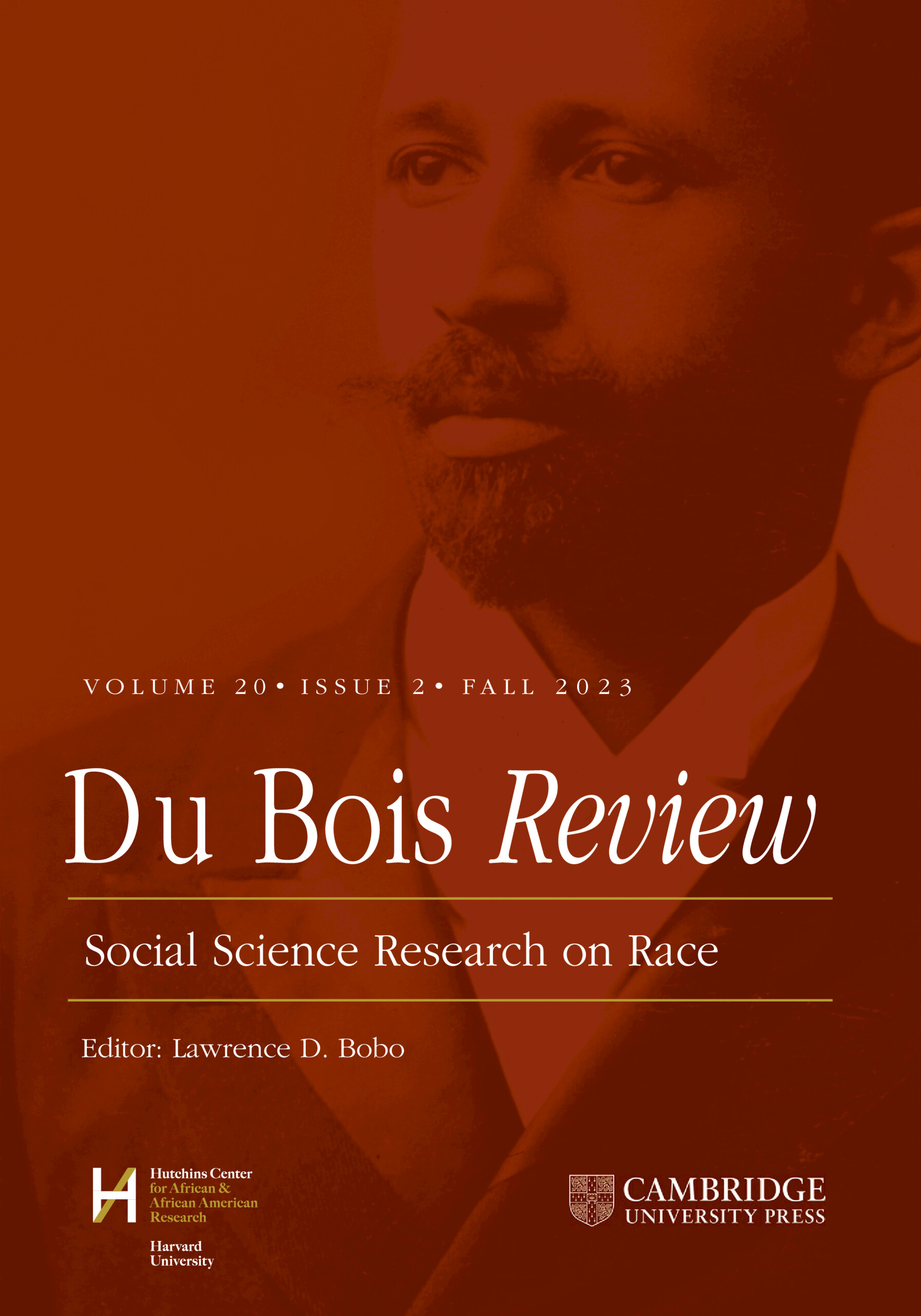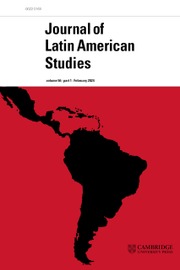Immigration, Ethnicity, and National Identity in Brazil, 1808 to the Present
Part of New Approaches to the Americas
- Author: Jeffrey Lesser, Emory University, Atlanta
- Date Published: January 2013
- availability: This ISBN is for an eBook version which is distributed on our behalf by a third party.
- format: Adobe eBook Reader
- isbn: 9781139602723
Find out more about Cambridge eBooks
Adobe eBook Reader
Other available formats:
Paperback, Hardback
Looking for an inspection copy?
Please email [email protected] to enquire about an inspection copy of this book
-
Immigration, Ethnicity, and National Identity in Brazil, 1808 to the Present examines the immigration to Brazil of millions of Europeans, Asians and Middle Easterners beginning in the nineteenth century. Jeffrey Lesser analyzes how these newcomers and their descendants adapted to their new country and how national identity was formed as they became Brazilians along with their children and grandchildren. Lesser argues that immigration cannot be divorced from broader patterns of Brazilian race relations, as most immigrants settled in the decades surrounding the final abolition of slavery in 1888 and their experiences were deeply conditioned by ideas of race and ethnicity formed long before their arrival. This broad exploration of the relationships between immigration, ethnicity and nation allows for analysis of one of the most vexing areas of Brazilian study: identity.
Read more- Includes oral histories and primary documents so readers can get a sense of the voices of immigrants and those with whom immigrants interacted
- Does not treat immigrants only as victims, unlike other immigration studies
- Places immigrants within a broader context of racial and ethnic relations
Reviews & endorsements
'A crowning achievement by the premier historian of immigration to Brazil. In this highly readable book, Lesser shows how immigrants from Europe, Asia, and the Middle East helped create new ways of being white, of being nonwhite, and of being Brazilian, and in so doing, helped create modern Brazil.' George Reid Andrews, University of Pittsburgh
See more reviews'Jeff Lesser is on intimate terms with Brazilian history and is an authoritative guide to this topic. His new overview of immigration to Brazil will richly reward its readership. [He] studies immigration as a process, not simply an event. [He] concentrates on the immigrants' interactions with the state and their participation in larger social and political currents. This is better than the older approach that tends to isolate immigrants (usually a single ethnic group) in the mind's eye, focusing on what they did not share with non-immigrants. In sum, Lesser shows us that to pull immigrants out of Brazil's living collage is to misunderstand them and their experience. Highly recommended!' John Charles Chasteen, University of North Carolina
This fascinating and lively book teaches us that to understand ethnicity and immigration we must consider Brazil, and to understand Brazil we must consider immigration and ethnicity.' Jerry Dávila, University of Illinois
'Jeffrey Lesser masterfully surveys the history of immigration to Brazil (and to some extent, from Brazil) through the lens of ethnicity. He has digested a vast literature in English and Portuguese to produce a concise and well-crafted volume that will become the standard survey of the subject.' Marshall C. Eakin, Vanderbilt University
'In this engaging and provocative book, historian Jeffrey Lesser demonstrates how central immigration has been, and continues to be, in struggles over Brazilian national identity. Weaving together his prodigious knowledge of postcolonial Brazilian history and the diverse experiences of the many immigrant ethnic groups in Brazil, Lesser produces a portrait of Brazilian society since independence that challenges and revises both scholarly and popular notions of what it means to be Brazilian.' Barbara Weinstein, New York University
'This book is accessible enough for the general reader, though the best use will be in an undergraduate course on Brazilian history or a course on race and ethnicity in Brazil or Latin America more broadly.' Colonial Latin American Historical Review
Customer reviews
Not yet reviewed
Be the first to review
Review was not posted due to profanity
×Product details
- Date Published: January 2013
- format: Adobe eBook Reader
- isbn: 9781139602723
- contains: 19 b/w illus. 1 map 19 tables
- availability: This ISBN is for an eBook version which is distributed on our behalf by a third party.
Table of Contents
1. Creating Brazilians
2. From Central Europe and Asia: immigration schemes, 1822–70
3. Mass migrations, 1880–1920
4. The creation of Euro-Brazilian identities
5. How Arabs became Jews, 1880–1940
6. Asianizing Brazil: new immigrants and new identities, 1900–55
7. Epilogue: the song remains the same.Instructors have used or reviewed this title for the following courses
- Cultures of Latin America
- The Making of Modern Brazil
Sorry, this resource is locked
Please register or sign in to request access. If you are having problems accessing these resources please email [email protected]
Register Sign in» Proceed
You are now leaving the Cambridge University Press website. Your eBook purchase and download will be completed by our partner www.ebooks.com. Please see the permission section of the www.ebooks.com catalogue page for details of the print & copy limits on our eBooks.
Continue ×Are you sure you want to delete your account?
This cannot be undone.
Thank you for your feedback which will help us improve our service.
If you requested a response, we will make sure to get back to you shortly.
×
